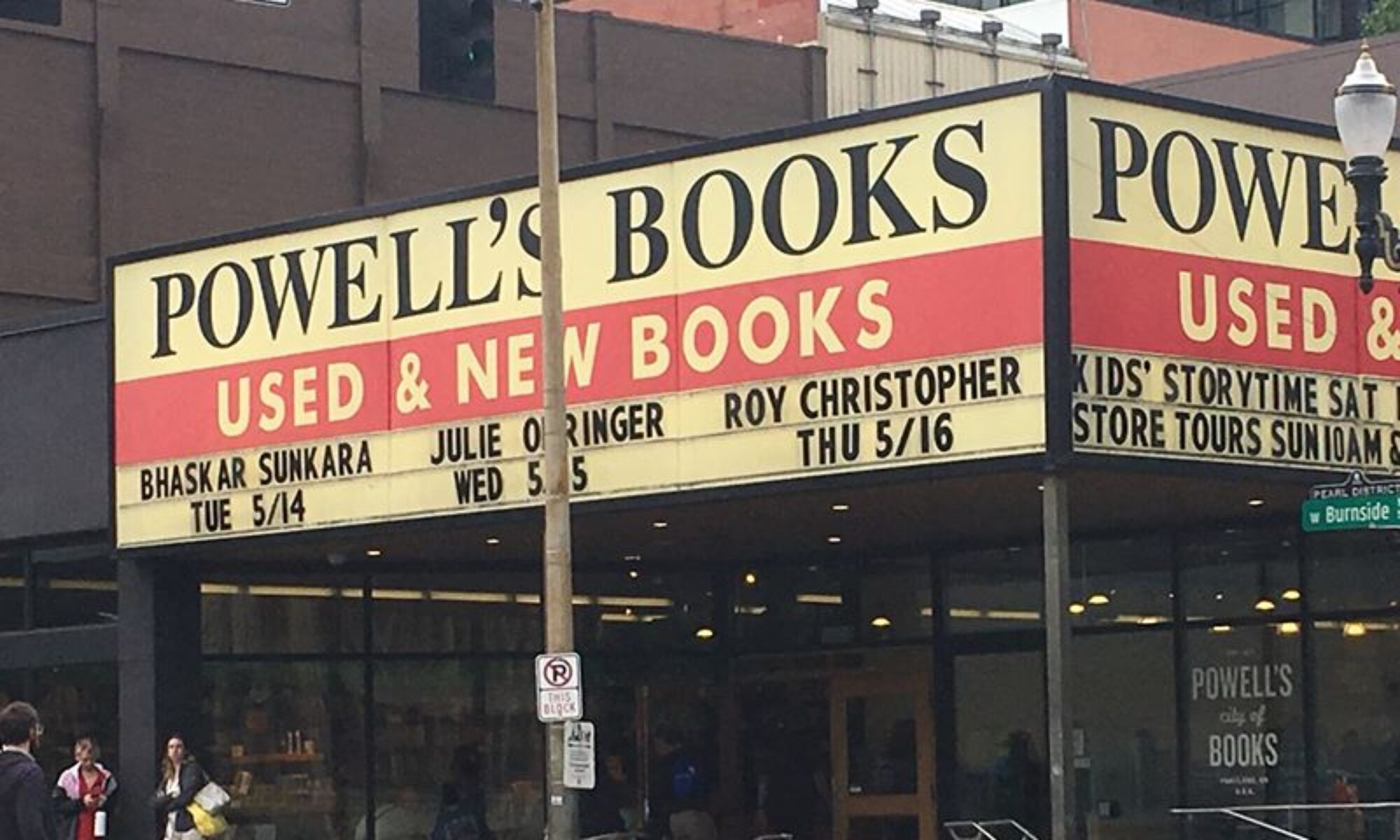When the French philosopher Jacques Derrida defined the lingering Marxism of late-Capitalist society as hauntological, mashing together the words “haunting” and “ontology,” he couldn’t have imagined what the era might sound like. Bay Area beat maestra Mars Kumari captures the grit and grief of loss we all feel now, haunted as we are by what was here and is now missing.
I met Mars Kumari at Oblivion Access in Austin in the summer of 2023, where she gave me a demo CD of her record, I Thought I Lost You (Bruiser Brigade, 2023). I already had her record for deadverse, Mars Kumari Type Beat (2021), so I was stoked for the preview. She’s moved on and on since then with collaborations in the works with legends like Del the Funky Homosapien and Dose One and a new solo record for Handsmade Collective.
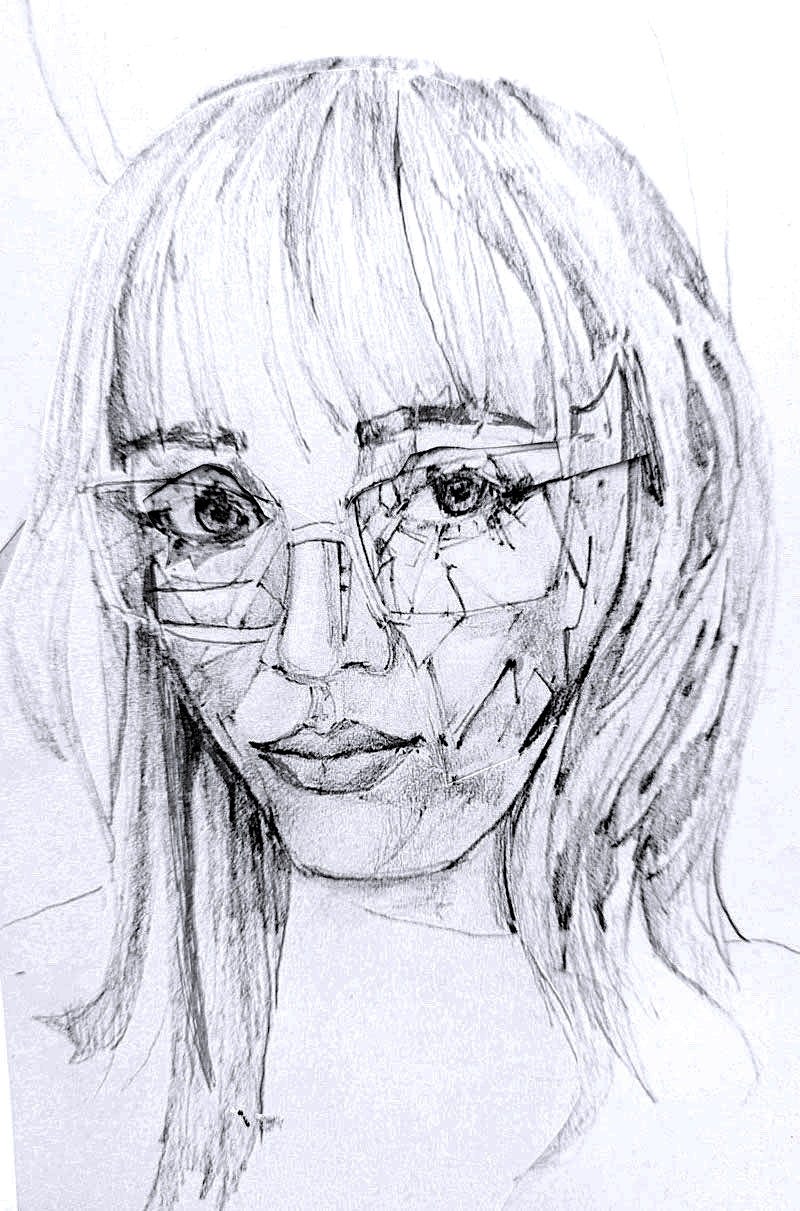
Roy Christopher: How’d you get into making music in the first place?
Mars Kumari: I first started learning music theory through piano lessons from age 6 onward, but didn’t start making my own music until around age 15/16 when my older brother gave me a pirated copy of Ableton. It was on version 8 at the time but 10 years later it’s still my weapon of choice. It took a lot of trial and error to learn (also YouTube tutorials). Throughout that period of time I’d absorb the music my brother listened to via these mix CDs he’d make, which is how I discovered MF DOOM, Del the Funky Homosapien, Crystal Castles, Flying Lotus, Nujabes, and Earl Sweatshirt, among so many others that ended up being core influences of mine.
I spent a year or so making beats by myself until I met my lifelong friends Keyvon and Shishan around 2015, and we all learned to produce and rap alongside one another. In 2019 and early 2020 when I was in university I performed alongside my good friends Nina Spheres and Parish as part of a dark ambient drone trio (collectively titled Nina Spheres). I learned much of what I know about sound design, layering and harmonics from that experience.
RC: More than any era of hip-hop, I hear the second wave of industrial acts (e.g, Scorn, Skinny Puppy, Justin Broadrick, Kevin Martin, the more ambient moments of Meat Beat Manifesto, Wax Trax Records output, et al.) in your work. Is that me just superimposing my own listening history, or do you find kindred sounds in there?
MK: I’ve been getting into the work of Justin Broadrick (specifically JK Flesh) since I saw him at Oblivion Access! I’m familiar with Skinny Puppy and Meat Beat Manifesto, but I need to get into their catalogs more. There are too many artists that influence me to name in one sentence, but Boards of Canada, dälek, Clams Casino, and Burial are some big ones for sure.
RC: What do you call it?
MK: My music?
RC: Yeah.
MK: I usually just say I make beats, even if that’s sort of oversimplifying it. My foundations have always been in industrial hip-hop, drone and shoegaze, but over the last 3 years that I’ve been performing for raves and nightclubs in the Bay, I’ve been listening to a lot more jungle, hard techno, dubstep, digital hardcore, things like that. I had listened to these kinds of music before but being around so much of it the last few years has had a major influence on my sound.
The context and emotions I associate with these kinds of music are consistently integral to the concepts behind my albums. For example, a lot of what I incorporated into Daybreak reminds me of some of my favorite memories of being surrounded by other trans people I love at parties and raves (places I’d be hearing the sort of music that inspired this) coupled with the comparative isolation of waking up the following morning alone in a world that hates people like us. It’s both of those feelings in equal measure behind the sound.
Given how important to the music the memories are, I guess I’d call it hauntology, but to me that feels more like a guiding philosophy and spirituality than a useful descriptor of the way it objectively sounds. There are many different sounds that the word hauntology describes; I think what unites them is more abstract.
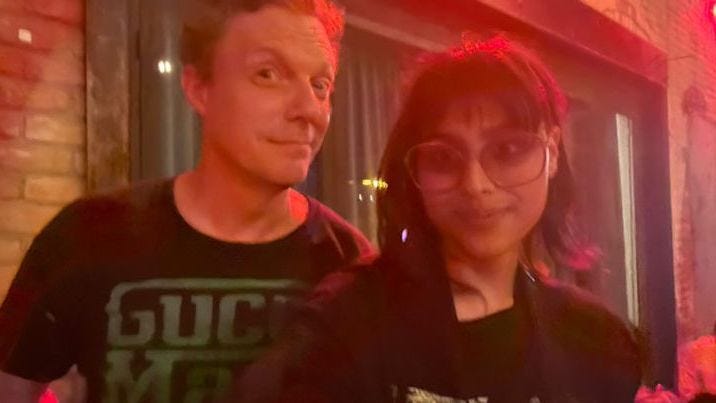
RC: What does hauntology mean to you?
MK: Mark Fisher defined it far better than I ever could, but in the context of music I would say it refers to sounds that evoke the distance between yourself and something you remember. The core memory is important, yes, but all music evokes memory on some level. Hauntology centers that temporal distance between you and your memories along with the feelings that may summon (usually nostalgia or a nonspecific feeling of loss). To me it’s more of a guiding set of principles.
However, as a broader philosophy of ghost-like things and temporal disjunction, it strongly informs my relationship to identity (especially gender identity). My own experience of transition has been one of constant tension between past and future selves. Early on, I felt as if the future I had chosen to seal away by transitioning was still haunting me; these days what I feel is more of a sense of having the past selves live on as revenants in my body alongside who I am now. Even the phrase “who I am now” feels relatively meaningless when the present self is never without past or future iterations.
RC: How would you chart the progression of your sound over your last five records?
MK: I put together my first album Anhedonic Mirages (2020) using beats I had made across the previous 5 years which I resampled and reshaped using a lot of distortion, reverb, and grain delay. It serves twofold as an exploration of a new sound and a reflection of where I felt I existed spiritually and temporally in my transition (and by extension the way in which past and future selves behave like revenants). It’s very washed out and bathed in noise and the song structures across this project follow a sort of dream logic. The whole thing is pretty “lo-fi” so to speak; from here I’ve tried to achieve clearer and clearer mixes with each album.
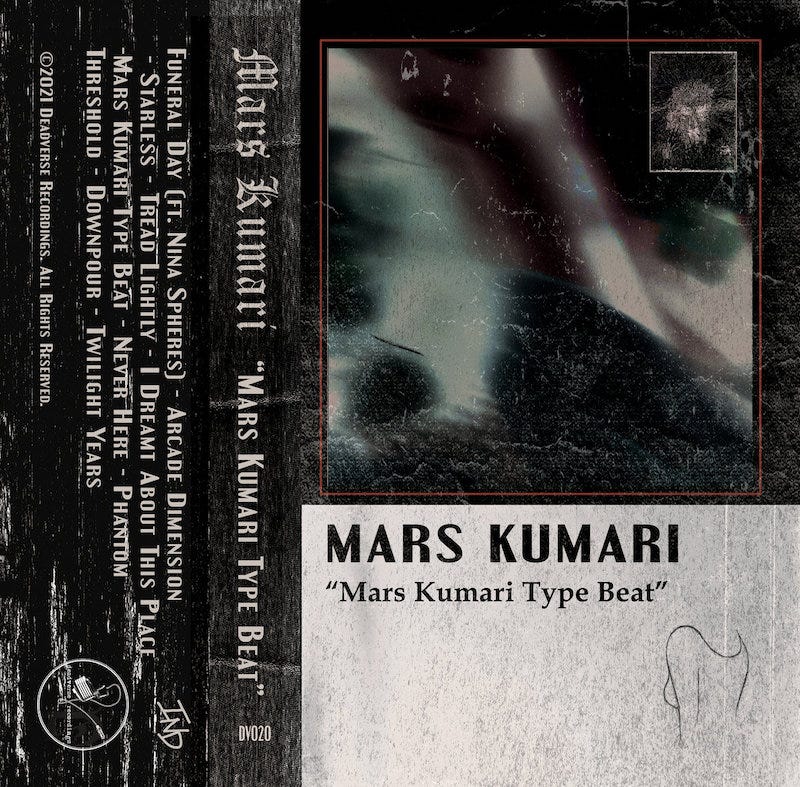
I released my next project Elysian Mourning (2021) the following February. This album is a bit more sparse and dreamlike; there’s less percussion than in the last album and what is there is subdued. The drones were the focus here. I used my SP-404 extensively for this one; something I like about the original model is the way that electrical noise stacks and multiplies the more you resample something.
Mars Kumari Type Beat (2021) once again re-centers the drums. Some of the oldest beats I’ve ever put out are on here; as such it’s much more varied in its sonic pallet. There are alternative versions of tracks from the previous two albums, beats I started in 2015, and lots of samples from tape reels. I originally released it for Bandcamp Friday that August, and dälek took a liking to it and offered to put that out on deadverse. I’m endlessly grateful that he took a chance on me.
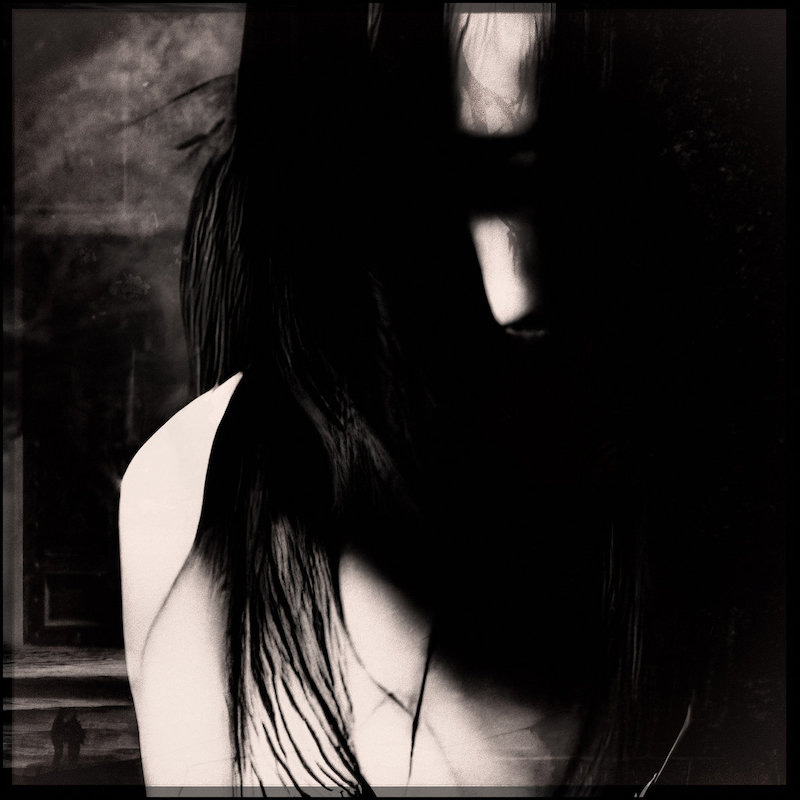
My next album I Thought I Lost You (2023) took two years to complete and release. There were often field recordings and found sound in the backgrounds of previous albums but they’re much more in focus here, serving as leitmotifs. For example, the ambient passage at the beginning of the final track is lifted from a cassette I found with a recording of someone’s funeral. The atmosphere of that room comes through even in the absence of the eulogy. Even when these kinds of recordings aren’t so closely tied to death, the nature of them is inherently ghost-like in their detachment from any identifiable source. All you have is the recorder’s voice, the room they were in, and to a subtler extent what they were feeling. All with no semblance of an idea of who this was, what they were like, or if they’re even still alive. A voice with no name or body is a ghost in my eyes.
Anyways, I Thought I Lost You is stylistically similar to Anhedonic Mirages, but much more refined, versatile, and massive. There are elements of jungle, noise, industrial hip-hop, and plunderphonics, all texturally united with a dense veil of dark ambience. I wanted to instill a sense of immersion into a new world. Conceptually, it’s grief as a dimension. This was released via Bruiser Brigade Records and mastered by Raphy.
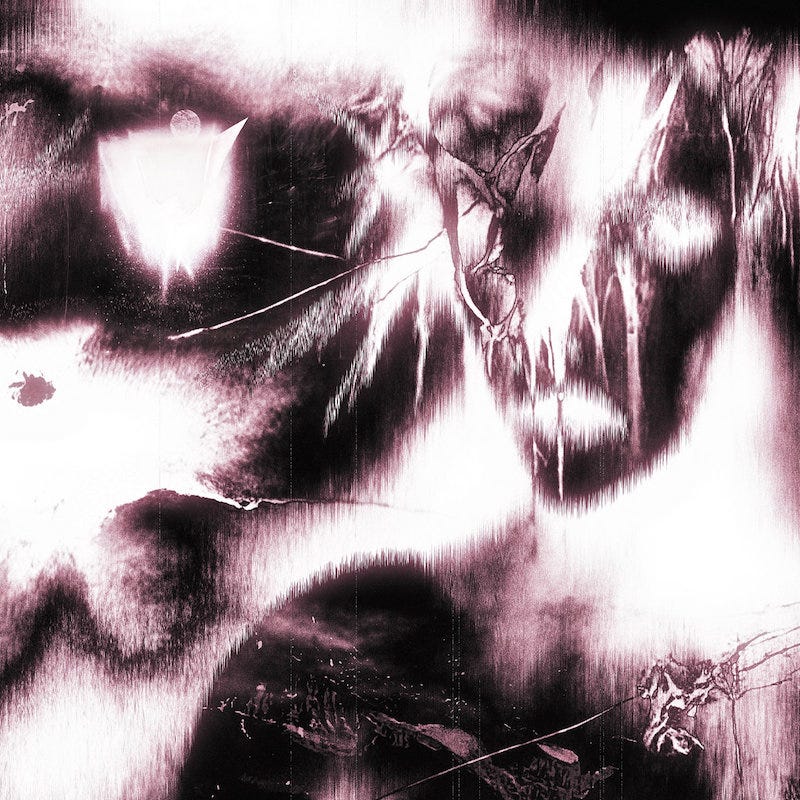
My latest album Daybreak (2024) is my attempt at deconstructed club, fusing hard techno and drum and bass and house with industrial hip-hop and gossamer layers of ambience. I wanted to make something that felt really crystalline and pretty that would sound great on a live soundsystem. Most of the songs here were designed for live performances, and many times I’d audition my mixes by playing them at shows and seeing how it sounded and how people responded. I try to wear my influences on my sleeve less these days, but it is very much inspired by artists like Burial, Arca, and Eartheater. I used a lot more synths and software drums here than in earlier albums (which were mostly or entirely sample-based, it’s more of a 50/50 ratio here). I’m really proud of the mix on this one. This is my first record with Handsmade Collective.
In summary, my sound has always had industrial trip-hop and dark ambient at its core, but over time has incorporated elements of deconstructed club and IDM with an increasingly glossy finish. Improving my mixing from one project to the next has always been a priority, and the results of working toward that are showing more and more in the increased clarity and scale of the sound.
RC: What’s coming up next?
MK: A full-length album with Del the Funky Homosapien has been in the works for most of the year. It’s about halfway recorded, and I’m aiming to have it out sometime midway next year. It’s tricky for me to say how it will sound given that it’s still in the works, but in a way it unites the grit of I Thought I Lost You with the gloss of Daybreak. I just started work on an LP with Dose One as well. There are other LPs and EPs planned as well, including one with my friend Q3, one with Uboa and Hook Operator, a noise EP with Lucas Abela and another solo record. Besides that, hopefully I can get a pet rabbit soon.
